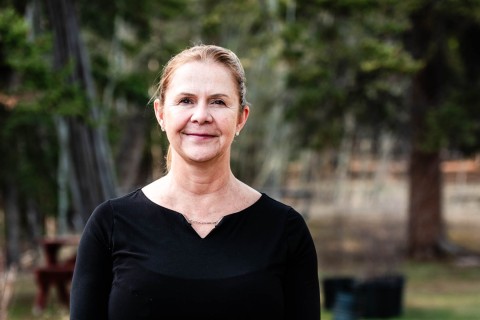A few weeks ago, within minutes of Bill C-59 – which strengthened the Competition Act on environmental claims – being passed, the oilsands Pathways Alliance and some of its member companies made swift and unusual moves. After three years of a prominent advertising campaign on the industry’s coordinated plan to reduce oilsands emissions; one that had spread far and wide across digital and traditional media platforms; Pathways suddenly removed its entire online presence – a vital sign of life for any organization. All that remains is a single webpage citing this as a “direct consequence” of Competition Act amendments.
In addition, Pathways member companies deleted their corporate sustainability reports from their own websites, also apparently in response to provisions in the omnibus bill about a basic expectation that companies, of all shapes and forms, should be able to back up environmental claims with real evidence.
In a world where most of us agree on the urgent need for credible solutions that will reduce oil and gas emissions and futureproof the industry to compete in a low-carbon future, what are we to make of this? Granted, the bill’s reference to an as-yet-undefined “internationally recognized methodology” that companies should follow when they make environmental claims is grey, and it is good to see the Competition Bureau announce that it will now develop guidance on an accelerated basis. But the Pathways member companies were already referencing internationally recognized standards and frameworks in their own (now deleted) climate and sustainability reports, some of which are referenced in their regulatory filings – meaning they were already subject to securities regulators’ basic expectation of accuracy and completeness.
And regardless of these new legal requirements, Pathways and all the companies involved should have always expected their pledges and plans to be subject to a high level of scrutiny. No other industry group, perhaps even globally, was claiming to be working towards the same level of emissions reductions that Pathways, until very recently, had published in its public pronouncements and marketing campaigns.
What has been missed in all this noise and furor is the fact that Bill C-59 also contained the finalized provisions of the long-awaited federal investment tax credit on carbon capture and storage (CCS) projects. That is, of course, the very tax credit that Pathways and its members lobbied hard for and have spent the last couple of years saying was the missing piece of the puzzle they needed before they could reach final investment decisions on their projects to capture carbon. So, while Shell promptly announced their CCS project’s final investment decision, the Pathways Alliance and its member companies remained silent.
At Pembina, we have always supported the stated goals of the Pathways initiative – but consistently pushed the alliance for more details on how and when it was going to move past pledges and promises, actually put money forward to break ground on projects, and when we could then expect emissions to meaningfully decline. The reality is that Pathways never had the ability to act meaningfully; it is not an oilsands operator hence it cannot file regulatory applications, it does not hold the “purse strings” nor have shareholders to steward to, hence cannot make final investment decisions. All Pathways could ever do is talk on behalf of the oilsands companies. And they are not talking anymore.
On the road to credible solutions for the sector, a very poor outcome would be the industry taking this moment to withdraw entirely from this conversation. But given that we know Canadians and Albertans are interested in action – not just talk – on reducing emissions, perhaps this apparent scaling back of Pathways is not an entirely bad thing. The ball is instead firmly back in the court of the real decision makers: the oilsands executives. In a world that may soon be set to need much less oil, and with countries starting to make moves towards examining the carbon intensity of their energy imports, reducing emissions from our oilsands may become an issue of market access, with clearly big implications for Alberta’s future economy. The stakes, in other words, could not be higher. Bill C-59 answered the executives’ questions on government support for their foundational carbon capture projects; they now have the information they have been asking for. It’s now time for the member companies to let their actions do the talking and start making some final investment decisions – whether that’s under the banner of Pathways or not.








